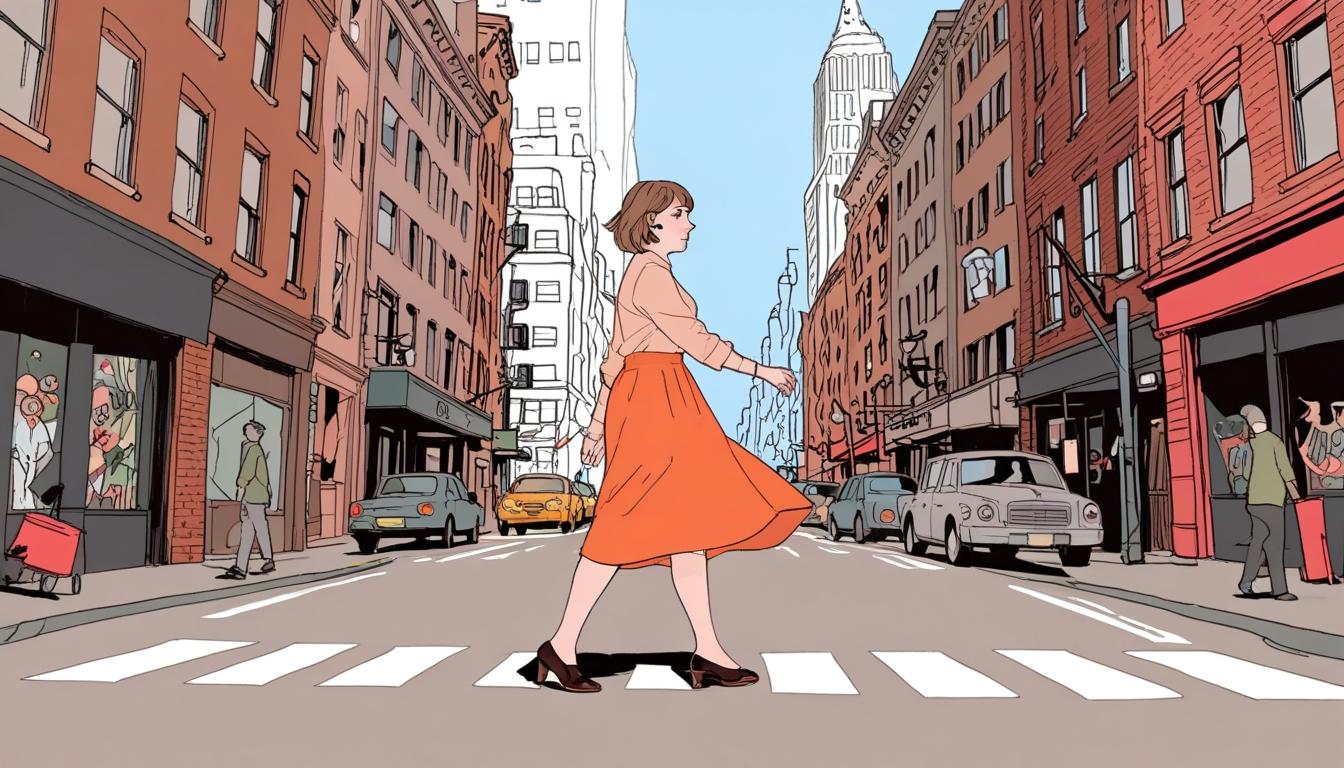Lena Dunham's Move from New York to London: A Cultural Reflection
John Guare, the renowned playwright, once conveyed that living in the city of one’s youth transforms an ordinary stroll into a deeply personal journey—“everything has a history.” This sentiment resonates with Lena Dunham as she embarks on her own narrative about leaving New York City, a poignant subject she explored in a recent essay for The New Yorker. Dunham’s reflections echo the themes of Joan Didion’s 1967 classic, "Goodbye to All That," where Didion encapsulated her emotional turmoil while departing for California. In contrast, Dunham, who grew up in New York, articulates her feeling of disconnect from the city that shaped her youth.
In her essay, Dunham recounts the chaos and aggressiveness of New York, recognising how her cheerful demeanor often set her apart from the city's more hardened inhabitants. “I had been told by countless cabdrivers… that I seemed like I was from someplace else,” she noted, highlighting the bewildering dichotomy between her upbringing and the frenetic energy of the city. This estrangement, however, paved the way for her eventual migration to London, which she now regards as a “blank slate”—a space where she could redefine her identity without the weight of familiar expectations.
Dunham’s recent artistic endeavours, including her directorial work on Amazon's Catherine Called Birdy and involvement with HBO’s Industry, have garnered renewed appreciation, particularly among younger viewers discovering her landmark series Girls on streaming platforms. In her transition to London, she suggests that time operates differently: "In London, years passed like days," she muses, a reflection that hints at a more measured pace of life compared to the relentless hustle of New York.
This slower rhythm resonates deeply with many expatriates, as they often grapple with the emotional toll of uprooting their lives in search of solace. Dunham’s observation mirrors the experiences of others who have sought refuge in new cities only to find their personal histories—and personal challenges—are right there with them. The pandemic familiarity of a place where one has not set deep roots can often feel hollow, contributing to the longing for home, regardless of its imperfections.
The cultural fabric of London has not only influenced Dunham's artistic lens but has also seen her stepping into the fashion world. Her recent runway debut at London Fashion Week for 16Arlington underscored her evolving identity and the industry’s shifting narrative towards inclusivity and body diversity. Dunham expressed that this experience challenged her self-perception and broadened her ambitions beyond the screen, marking a significant evolution in how she interacts with the world around her.
Indeed, the dialogue surrounding mobility—whether across continents or simply from one neighbourhood to another—illuminates broader themes of belonging and identity. As Dunham articulates the allure of London, she evokes the nostalgia many feel when contemplating the city they left behind. There’s a finality in Guare's reflections on home, acknowledging that for those who have the privilege to leave, the truest luxury may lie in the ability to return.
Thus, as Lena Dunham charts her new course in London, she invites both her audience and herself to ponder the complexities of identity, belonging, and the narratives that shape our lives. In her journey, we find echoes of our own experiences, the places we hold dear, and the stories we carry with us, regardless of where we choose to call home.
Reference Map:
- Paragraph 1 – [1], [2]
- Paragraph 2 – [1], [2]
- Paragraph 3 – [1], [5], [4]
- Paragraph 4 – [1], [5]
- Paragraph 5 – [1], [4], [3]
Source: Noah Wire Services
